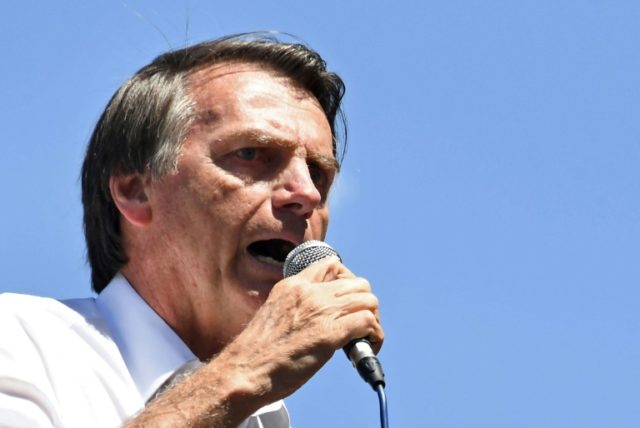Brazil’s conservative presidential frontrunner Jair Bolsonaro warned in a recent interview that “China is buying Brazil,” threatening the nation’s sovereignty.
Bolsonaro, who has pledged to implement a number of market reforms that include privatization of many state-run industries, said in an interview with the Brazilian network Band TV that he would not extend privatization to the core business of oil company Petrobras or the power industry, thus preventing China from investing in such organizations.
The Epoch Times – a newspaper founded by practitioners of the Falun Gong spiritual group, which the Chinese government intensely persecutes – picked up on the remarks on Tuesday.
“China isn’t buying in Brazil. China is buying Brazil,” Bolsonaro said. “Are you willing to leave Brazil in the hands of the Chinese?”
It is not the first time that the 63-year-old presidential hopeful has made similar remarks about Beijing’s influence. At a rally in Boa Vista earlier this year, he declared, “We will do business with the Chinese – but we will not hand our territory over to anybody!” He has also publicly shown disdain for fractious Mercosur trade bloc, of which Brazil is a leading member alongside Argentina, Brazil, Paraguay, and Uruguay.
Yet some experts believe that Bolsonaro may be forced to compromise his position on China to protect the country’s economic interests, as the country became Brazil’s largest trading partner in the past decade. Last year, experts at the Inter-American Development Bank in Washington, DC, warned that Chinese investment was flowing into Brazil “like a tsunami,” foreign direct investment growing 37 percent between 2010 and 2016.
“Bolsonaro may have reservations about the sale of certain assets, but if Chinese investment goes into infrastructure that Brazil badly needs to export food and minerals, I do not think he will oppose it,” Rubens Barbosa, a former Brazilian ambassador to the United States, told Reuters.
China has long viewed Brazil as a key target for expanding its influence over Latin America, where Beijing has used predatory loans and grand infrastructure projects to coin favor across the continent. Chinese Communist Party officials have also outlined their desire to “promote globalization” in the region, and the country has seen an explosion in the study of Spanish and Portuguese among undergraduates.
Washington continues to express concern over China’s influence in the developing world. The United States’s 2018 National Security Strategy highlights China as a “strategic competitor” in the region, citing the rise of Chinese traffickers of the synthetic opioid fentanyl through Latin America as a threat.
Bolsonaro is generally understood to follow the Trump administration’s line on most issues of foreign policy, including plans to move the Brazilian embassy in Tel Aviv to Jerusalem. According to recent polls, he is widely expected to win the presidency against socialist candidate Fernando Haddad.
Follow Ben Kew on Facebook, Twitter at @ben_kew, or email him at bkew@breitbart.com.

COMMENTS
Please let us know if you're having issues with commenting.